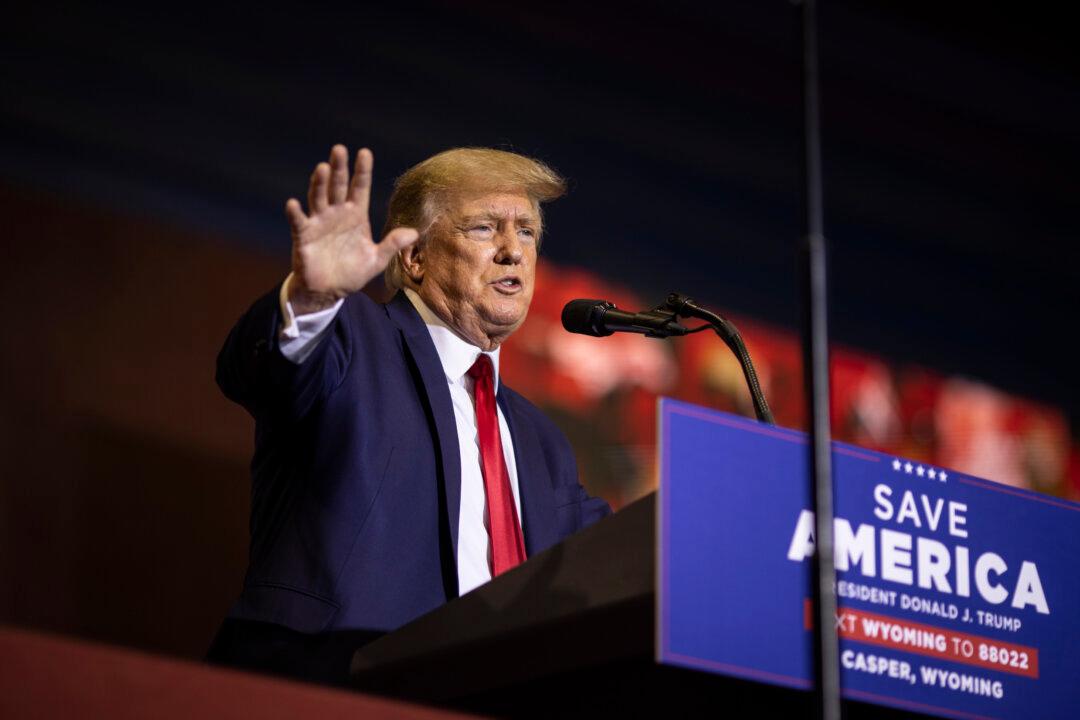Former President Donald Trump criticized President Joe Biden’s executive order to “forgive” billions of dollars of student loan debt, calling it an “election enhancing money grab” as the midterms approach.
“Joe Biden and the Radical Left Democrats have just orchestrated another election enhancing money grab, this time to the tune of $300,000,000,000—and just like I predicted, it’s coming right out of the pocket of the working-class Americans who are struggling the most!” Trump said in a statement on Truth Social on Aug. 25.




